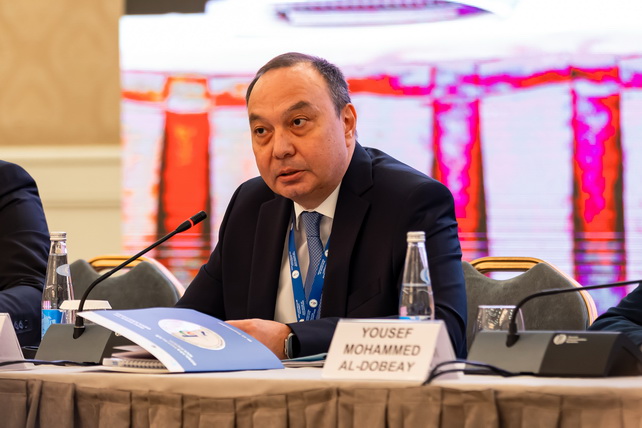
Eldor Aripov: Uzbekistan Makes a Real Contribution to the Development of Interfaith Dialogue
Tashkent, Uzbekistan (UzDaily.com) — Today, the II International Forum “Dialogue of Declarations” began in Tashkent.
In his welcoming speech, Eldor Aripov, Director of the Institute for Strategic and Interregional Studies under the President of the Republic of Uzbekistan (ISMI), emphasized that at a time when interfaith tensions are intensifying in many parts of the world, the Forum serves as a unique platform that brings together people of different religious beliefs to promote mutual respect, freedom of conscience, and a culture of tolerance.
He recalled that the current forum continues the initiative launched in 2022, which resulted in the Bukhara Declaration, recognized as an official document by the United Nations General Assembly.
Speaking about the forum’s objectives, Aripov highlighted that its key task is to strengthen international cooperation in promoting the ideas of enlightenment and a culture of tolerance. “It is symbolic that we call our Forum a ‘Dialogue.’ Declarations are born when words gain power and intentions become a shared course. But this path always begins with a trusting conversation, from which initiatives, projects, and partnerships grow,” he stressed.
Developing this idea, Aripov noted that such approaches are closely aligned with the reforms currently being implemented in Uzbekistan. In particular, under the strategy for building a “New Uzbekistan,” proclaimed by President Shavkat Mirziyoyev, special attention is paid to the protection of human rights, including ensuring freedom of religion.
The ISMI director emphasized that this issue is regarded as a cornerstone of sustainable societal development. In this regard, the country has implemented significant reforms in the religious sphere in recent years. Notably, in 2021, the Law of the Republic of Uzbekistan “On Freedom of Conscience and Religious Organizations” was adopted in a new version.
The registration process for religious organizations has been significantly simplified. Additionally, quotas for the Hajj pilgrimage have been doubled, and three new higher Islamic educational institutions have been opened.
According to Aripov, Uzbekistan operates on the principle that guaranteeing freedom of conscience reduces the risk of radicalization and religiously motivated conflicts. The state also considers this a key factor in strengthening trust between authorities and society.
In conclusion, the ISMI director expressed confidence that the dialogue within the forum will be an important step toward creating an atmosphere of peace and harmony, and that the forum’s final document will make a significant contribution to promoting universal human values at the global level.
The forum is organized by ISMI in partnership with the U.S. NGO “Love Your Neighbor Community” (LYNC), with the support of the Committee on Religious Affairs, the Center for Islamic Civilization in Uzbekistan, the Ministry of Foreign Affairs of Uzbekistan, and the Samarkand regional administration.
Around 50 leading scholars of religion, theologians, experts, and high-ranking officials from 15 countries, including the United States, the United Kingdom, China, Saudi Arabia, the United Arab Emirates, Indonesia, and Central Asian states, are participating in the event.